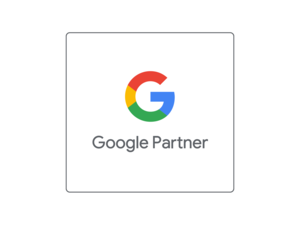Generative AI has been the hot topic of 2023 so far, and now Google's long awaited version of the technology is coming to its search engine. The internet's largest player has brought forward its plans following Microsoft's similar move with its Bing search engine earlier this year. It's clear, without any doubt, that the future of web search is now here. So, what does it mean for B2B marketers, search engine optimisation (SEO), and paid search strategies going forward? Richard Nicol, The Pod's SEO manager, provides an explanation of everything you need to know:
What has Google actually announced and how does it compare to the new Bing?
In January, Microsoft announced its new GPT-4-powered Bing search engine to much excitement. The system has been well received so far. It understands natural language and provides direct answers by gathering data from various sources rather than providing a list of links to relevant websites.
This move has forced Google's hand – the company had been taking a slower and more cautious approach to generative AI following public pressure. But as a result, the web giant has responded with its "Search Generative Experience" (SGE), powered by Google Bard. Revealed at Google I/O in May, the updated search engine uses generative AI technology to offer detailed and comprehensive search results. According to Google, it represents a "fresh approach to search queries, designed to streamline complex search tasks while also providing informative snapshots that link to more comprehensive resources."
Naturally, this technology is still in its early public release phase. Offline, governments and businesses are still deciding how to respond, and users are still exploring its potential. With Google's announcement, the search wars have become more serious – and we all must adapt accordingly.
What is the impact for marketers on their SEO strategy?
Things are moving at a rapid pace, and changes could occur quickly. Google is undoubtedly the largest search engine and information database worldwide, so the move is certain to have an impact.
For marketers who have spent years perfecting their SEO strategies, this development may seem frustrating – but it doesn’t need to be. AI should provide a better user experience, something that your customers highly value. The technology can deliver more personalised content, improve the quality and speed of interactions, and enhance accuracy, a crucial aspect for users. Because AI algorithms can analyse vast amounts of data, it should be easier for search engines to provide more accurate results. Google's new tool will also drive further innovations in search, like improvements in voice optimisation.
Despite these positives, we cannot ignore the challenges. One of the most significant will be the potential loss of control over search rankings and referral traffic. There are also significant legal questions that remain unanswered. For example, we don't yet know how SEO results will link back to their sources, and therefore, it is currently impossible to determine how organic search traffic will be generated. Another potential drawback is that as AI-powered tools have become more common in the business landscape, they have become more accessible, leading to increased competition for rankings.
Since the technology is still in its early days, we can only speculate about exactly how SEO will be affected. It is safe to say at this point that SEO will be impacted, and businesses that establish a plan now will be better positioned to adapt and respond.
What about the impact for marketers on SEM (paid search) activity?
Google's involvement also confirms that SEM strategies for B2B marketers will need to change. With Bing gaining traction by offering an alternative to Google, marketers should seize the opportunity and invest in Bing campaigns to diversify their platforms.
To adapt to changing user behaviour influenced by AI-generated content, it is crucial to migrate towards broad match in both Google and Bing. Additionally, as AI-generated content may impact click volume, marketers must embrace automated bidding algorithms such as smart bidding - to optimise volume and effectiveness for their clients.
One thing we can all be sure of is that by staying ahead of the curve and keeping up to date with AI developments, marketers stand the best chance of navigating the evolving SEM landscape.
What can your business do right now?
For businesses, Google's latest announcement may be more interesting in terms of its effect on the overall AI landscape, rather than simply the platform itself. The involvement of the internet's biggest player indicates that these tools are here to stay. Navigating this new landscape might seem daunting, but with the right approach, marketers can prepare for the changes and stay ahead of the game. Here are three key areas to focus on:
Embrace the future of search: As the amount of data increases, summarising keyword performance will become challenging. To overcome this, it's crucial to categorise keywords based on topics, user journey, and intent. Leveraging automation and natural language processing technology, such as OpenAI, can help marketers scale their efforts effectively. Google has started offering guidance on using AI-generated text, which can be beneficial for copywriting, briefs, metadata, and more. That doesn’t mean the whole process should be automated – it's important to consider your text-based needs, mitigate misinformation, and ensure quality assurance before adopting AI-generated text. Assess your tech stack to determine if you can use the APIs effectively.
Focus on new content topics: Generative AI models are trained on existing text, which means there's an opportunity to explore new fields of interest that search engines may not yet cover. By being proactive and creating content on emerging topics, you can position yourself as an authority in those areas. The search results will reward your early presence, allowing you to build credibility and attract an engaged audience.
Consider the next steps: We're still at the early stages of the AI and generative text search revolution, and the landscape is changing rapidly. To navigate this transition successfully, it's crucial to have an expert team or SEO partner that can keep you informed about the latest developments and help define a strategy that aligns with the evolving search landscape. At pivotal moments in history such as this, it goes without saying that businesses should be agile, adaptable and open to adjusting their strategies as the search environment continues to evolve.
Need help to develop your SEO and paid search strategies and get them future ready? Contact The Marketing Pod’s experts today.






 Raven Wheatley-Hawkins
Raven Wheatley-Hawkins
 Alexander Costello
Alexander Costello
 Jessica Keynes
Jessica Keynes






.png)


